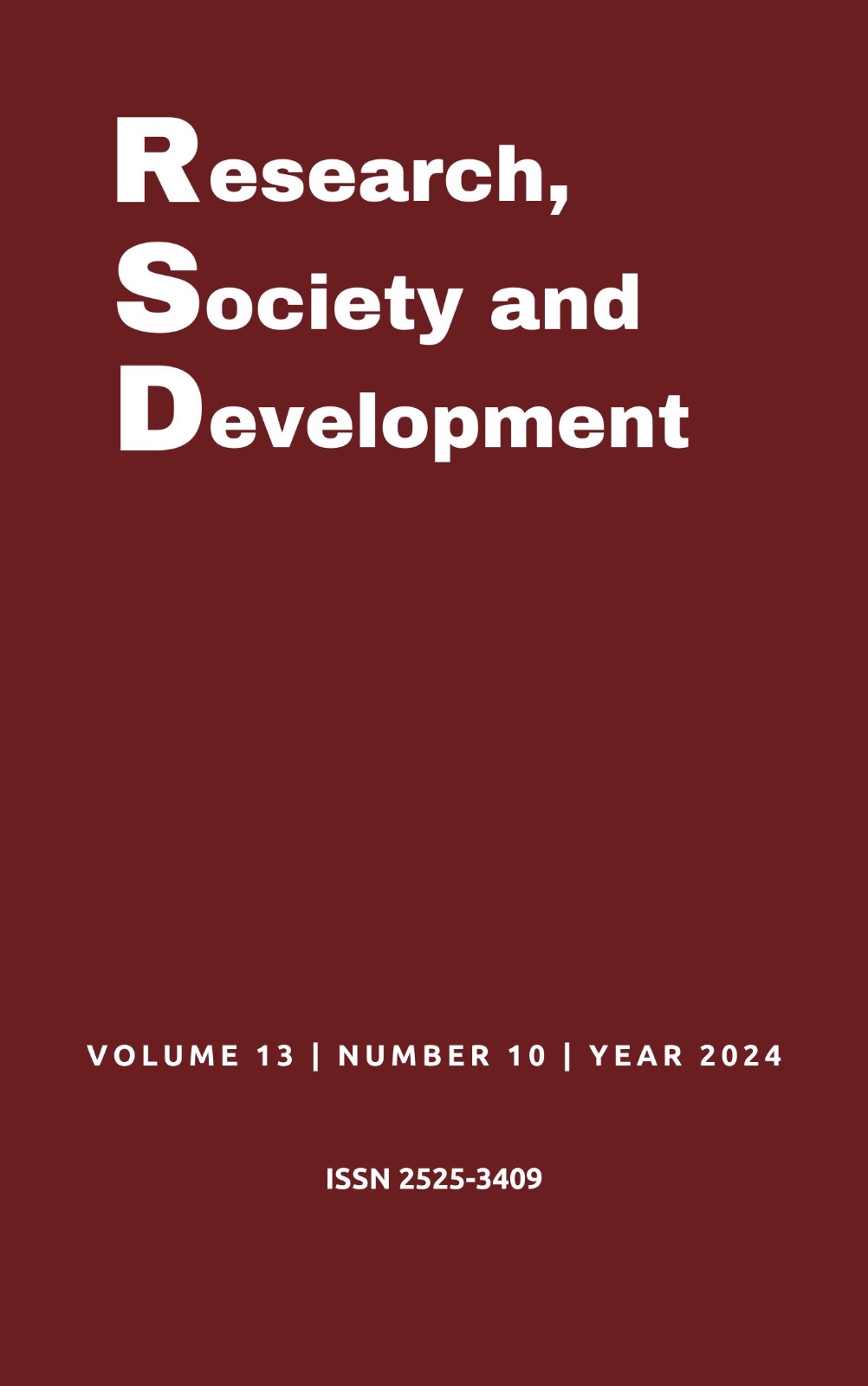Public education policies for deaf students in Brazil: Challenges and inclusion in the school environment
DOI:
https://doi.org/10.33448/rsd-v13i10.47187Keywords:
Public Policies, Teaching, Special Education, Deaf.Abstract
The article aims to study public education policies for deaf students in Brazil, as well as the challenges of their inclusion in the school environment. Methodology: This is a qualitative bibliographical research. In Brazil, over the last few years, there have been significant advances in the field of research and production of materials to improve the conditions of deaf students in society and at school. On April 24, 2002, it was regulated by Decree No. 5,626 and, at the end of 2005, which determined the inclusion of Libras as a mandatory curricular subject in teacher training courses, at secondary and higher levels, and in speech therapy courses, represents a huge achievement for the Deaf community. The study showed that it is a living language, each country has its own language, it is not universal, when inclusion is promoted, it teaches students without distinction, it allows respect for the right to quality education even if it is different from other modalities, such a discussion begins to gain strength more recently, through some thinkers who begin to raise questions about the model determined by the legal frameworks.
Downloads
References
Brasil. (2002). Ministério da Educação. Secretaria de Educação Especial. Ensino de língua portuguesa para surdos: caminhos para a prática pedagógica/Secretaria de Educação Especial – Brasília: MEC/SEESP.
Campelo, A. R. R. (2008). Aspectos da visualidade na educação de Surdos. Tese de Doutorado. Florianópolis: UFSC.
Campelo, A. R. R, (2011). Onde você quer chegar? Petrópolis: Editora Arara Azul, 11 abr. 2006. http://www.editora-arara-azul.com.br/pdf/artigo18.pdf.
Carvalho, E. P. N., Carvalho, P. L., Dias, M. A. N., Melo, F. C. S., & Melo, L. S. (2024). O Acesso À Libras Como L2 No Âmbito Escolar: Inclusão, Mediação E Cidadania. Revista Acadêmica Online, 10(53), e338-e338.
Cummins, J. (2003). www.iteachilearn.com/cummins.
Declaração de Salamanca. (2011). Sobre Princípios, Políticas e Práticas na Área das Necessidades Educativas Especiais. http://portal.mec.gov.br/seesp/arquivo/pdf/salamanca.pdf.
Günther, H. (2006). Pesquisa qualitativa versus pesquisa quantitativa: esta é a questão?. Psicologia: teoria e pesquisa, 22, 201-209.
Felipe, T. A. (2001). Libras em contexto: curso básico. Livro do estudante. Brasília: ministério da Educação/Secretaria de Educação Especial.
Lacerda, C. B. F.; Goés, M.C.R. (2000). (Orgs). Surdez: processos educativos e subjetividade. SP: Lovise.
Lodi, A. C. B. (2005). Plurilingüismo e surdez: uma leitura bakhtiniana da história da educação dos surdos. Educação e Pesquisa, São Paulo, 31(3), 409-424, setembro a dezembro.
Martins, A. L. B. (2004). Identidade Surdas no processo de idenfificação linguística: o entremeio de duas línguas. Dissertação de Mestrado. Uberlândia: UFU.
Moura, M.C. (2000). O Surdo: caminhos para uma nova identidade. Rio de Janeiro: Revinter.
Pereira, P. A. P. (2001). As Vicissitude da pesquisa e da teoria no campo da política social in: SER SOCIAL nº 9. Um B, Brasília julho a dezembro. (p. 77-91).
Quadros, R. M. (2004). Situando as diferenças implicadas na educação de surdos. Inclusão / exclusão. Florianópolis, mimeografado.
Quadros, R. M. (2007). O debate sobre o Surdo e a inclusão. Versão preliminar. Material de formação docente. Florianópolis: SESI.
Rangel, G. M. M. (2004). História do povo surdo em Porto Alegre: imagens e sinais de uma trajetória cultural. Dissertação de Mestrado. Porto Alegre: UFRGS.
Rodrigues, Z. (2008). Histórico da Educação dos surdos. http://www.webertigos.com/articles/3639/1/historico-da-educacao-dossurdos/pagina1.html.
Rother, E. T. (2007). Revisão sistemática x revisão narrativa. Acta Paul. Enferm, 20(2).
Sacks, O. (2002). Vendo Vozes. Uma viagem ao mundo dos surdos. São Paulo: Companhia de Letras.
Sassaki, R. K. (2009). Nomenclatura na área da surdez. http://sentidos.uou.com.br/canais/materia.asp?codpag=8325&codtipo=8&subcat=31&canal=visao.
Sousa, A. S., Oliveira, G. S. & Alves, L. H. (2021). A pesquisa bibliográfica: princípios e fundamentos. Cadernos da FUCAMP, 20(43).
Souza, R. M. (2000). Práticas alfabetizadoras e subjetividade. Em surdez – Processos educativos e subjetividade. Cristina Broglia Feitosa Lacerda e Maria Cecília Rafael de Góes (org.) Lovise. SP.
Strobel, K. L. (2007). História dos surdos: respresentações “mascaradas” das identidades surdas. In: Estudos Surdos II. Petrópolis, RJ: Arara Azul, 2007.
Strobel, K. L. (2008). As imagens do outro sobre a cultura surda. Florianópolis: Ed. da UFSC, 2008.
Vilela, G. B. (2007). Histórico da Educação do Surdo no Brasil. http://www.fonoaudiologos.net/2007022853/auto-profissional/genivalda-barbosa-vilela/histico-da-educao-do-surdo-no-brasil.html.
Downloads
Published
Issue
Section
License
Copyright (c) 2024 Marcos Antonio Evangelista; Maria Miriam Evangelista Rodrigues; Mirian Jéssica Encarnação Lima; Elden do Carmo de Deus; Luã Fernandes de Figueiredo; Izaque Viana Gomes; Ana Maria da Silva Gama Barbosa; Mayara Pinho Carvalho; Adenira Sousa Pinto

This work is licensed under a Creative Commons Attribution 4.0 International License.
Authors who publish with this journal agree to the following terms:
1) Authors retain copyright and grant the journal right of first publication with the work simultaneously licensed under a Creative Commons Attribution License that allows others to share the work with an acknowledgement of the work's authorship and initial publication in this journal.
2) Authors are able to enter into separate, additional contractual arrangements for the non-exclusive distribution of the journal's published version of the work (e.g., post it to an institutional repository or publish it in a book), with an acknowledgement of its initial publication in this journal.
3) Authors are permitted and encouraged to post their work online (e.g., in institutional repositories or on their website) prior to and during the submission process, as it can lead to productive exchanges, as well as earlier and greater citation of published work.


